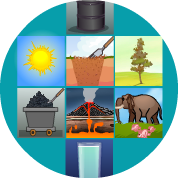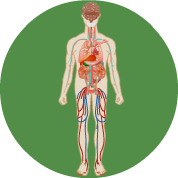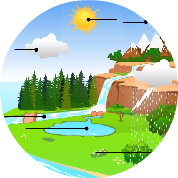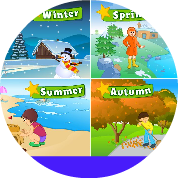Login as parent/teacher to assign this.
Science Games
Science Games
Our online science games are sure to fulfill your child's sense of curiosity. They introduce kids to basic science concepts in an approachable manner, reinforcing comprehension through engaging and stimulating activities.
Using interactive science games creates a unique learning process when combined with conventional teaching methods. At Turtle Diary, we have a vast collection of science kids games covering such topics as the human body, weather, life cycles, animals, and much more. Our games will captivate and hold the attention of your child, creating an unforgettable learning experience
Using interactive science games creates a unique learning process when combined with conventional teaching methods. At Turtle Diary, we have a vast collection of science kids games covering such topics as the human body, weather, life cycles, animals, and much more. Our games will captivate and hold the attention of your child, creating an unforgettable learning experience
Grade-Appropriate Games
Each game at Turtle Diary is based on a grade-level. This is to ensure children are learning at the appropriate grade level and the subject matter is not too advanced. This also makes the games challenging, but entertaining.
The animation is bright and colorful in order to catch your child's attention. With science games offering multiple levels of challenges, your child will not get bored. The subjects covered include various animals, plants, water, matter, sound, parts of the body, dinosaurs, the solar system, and the four seasons.
The animation is bright and colorful in order to catch your child's attention. With science games offering multiple levels of challenges, your child will not get bored. The subjects covered include various animals, plants, water, matter, sound, parts of the body, dinosaurs, the solar system, and the four seasons.
Improving Memory and Concentration
An excellent byproduct of these interactive games is the improvement of your child's concentration. It takes focus to win these games. Many of the games, including "Animals and Their Babies", are based on memory location. This game uses pictures on cards that your child needs to flip over in order to match a mother with her baby.
As your child progresses through the science games, he or she may not even realize that these are actually learning games. You will be able to observe your child and discuss the games. You may be surprised at the in-depth answers your child may give you after playing the games for just a short period.
As your child progresses through the science games, he or she may not even realize that these are actually learning games. You will be able to observe your child and discuss the games. You may be surprised at the in-depth answers your child may give you after playing the games for just a short period.
What to learn through science kids games?
When playing science games, students will begin to associate the knowledge and concepts they’re practicing with the world around them all while having fun. When learning becomes an enjoyable activity, students will want to come back for more and more, practicing and honing their skills for mastery and retention of important concepts. Take a look at the wide variety of game topics available under the science umbrella.
How to Know Animals through Animal Games?
Beginning with simple identification of animals, students will begin to build identification and classification concepts in their minds. They’ll learn animal groups and what characteristics qualify an animal to be a part of that group, the precursor to formal taxonomic classification. What animals eat, where they live, and the habits they have are all concepts that come along with animal learning.
What about Plants?
Learning the basic life cycle of plants is a primary skill that most kids master by learning the visuals of each stage. In addition, classification of different types of plants begins their learning of flora. From flowers to vines, students will learn about how plants grow, their ecosystems, and what they need for survival. Basic identification of different plants will also be a part of the learning process.
Want to Know the complete Human Body structure?
Beginning with simple body part identification, students will satisfy their curiosity by learning the proper names for body parts and their location on the body. Starting from the outside in, students will learn the systems of the body and how they function as a whole complete unit. From the vascular to cardiovascular, digestive to skeletal, the body is an amazing structure that helps us live and thrive. Learning how to keep each part in top shape becomes an important part of anatomical knowledge.
How to better understand Weather and Seasons through games?
Identifying the four seasons often begins our study of weather and seasons, with students learning the months of the year and the type of weather and changes associated with each.
Keeping track of the weather outside on a daily basis helps kids understand the concept of precipitation and clouds, as well as the sun and the moon’s purpose. The water cycle becomes an important part of learning as well, and students may also get into more extreme forms of weather like natural disasters.
Keeping track of the weather outside on a daily basis helps kids understand the concept of precipitation and clouds, as well as the sun and the moon’s purpose. The water cycle becomes an important part of learning as well, and students may also get into more extreme forms of weather like natural disasters.
Games that explain food chain concepts in an easy way?
The way our ecosystem functions has a lot to do with the structure of the food chain and the great circle of life. Learning about organisms from the biggest mammals down to the smallest amoebas will help students learn about the way the world works. In addition, understanding this structure will help them to expand their world view and see themselves as a part of the structure of the planet.
How does energy in the world regulate and conserve itself?
How the human body gains energy to function is one part of the puzzle, but energy gained from natural and synthetic sources are also important concepts to understand. Students are often fascinated with what makes things go, including how the elements of the earth make that possible. From solar power to turbines, hydroelectricity to fossil fuels, students will explore how all moving things create and conserve their energy.
Identify various concepts about earth and natural resources?
From rocks to natural resources, students will learn more about the world around them and the structure of the planet on which they live. The earth’s different layers, the oceans and waterways, and how landforms were created are fascinating concepts to kids, especially when you include volcanoes and earthquakes. Learning how resources are mined and utilized, or conserved for future use also becomes an important part of learning to be a global citizen.
No matter what concept your student wants to dive into, science games will help to broaden their perspective of the world around them and increase their knowledge of the way the world works overall.
No matter what concept your student wants to dive into, science games will help to broaden their perspective of the world around them and increase their knowledge of the way the world works overall.
Our Educational Resources
Math Games
- Addition
- Area and Perimeter
- Decimals
- Division
- Fractions
- Shapes
- Geometry
- Multiplication
- Number
- Roman Numerals
- Statistics
- Subtraction
- Time
- Units of Measurement








